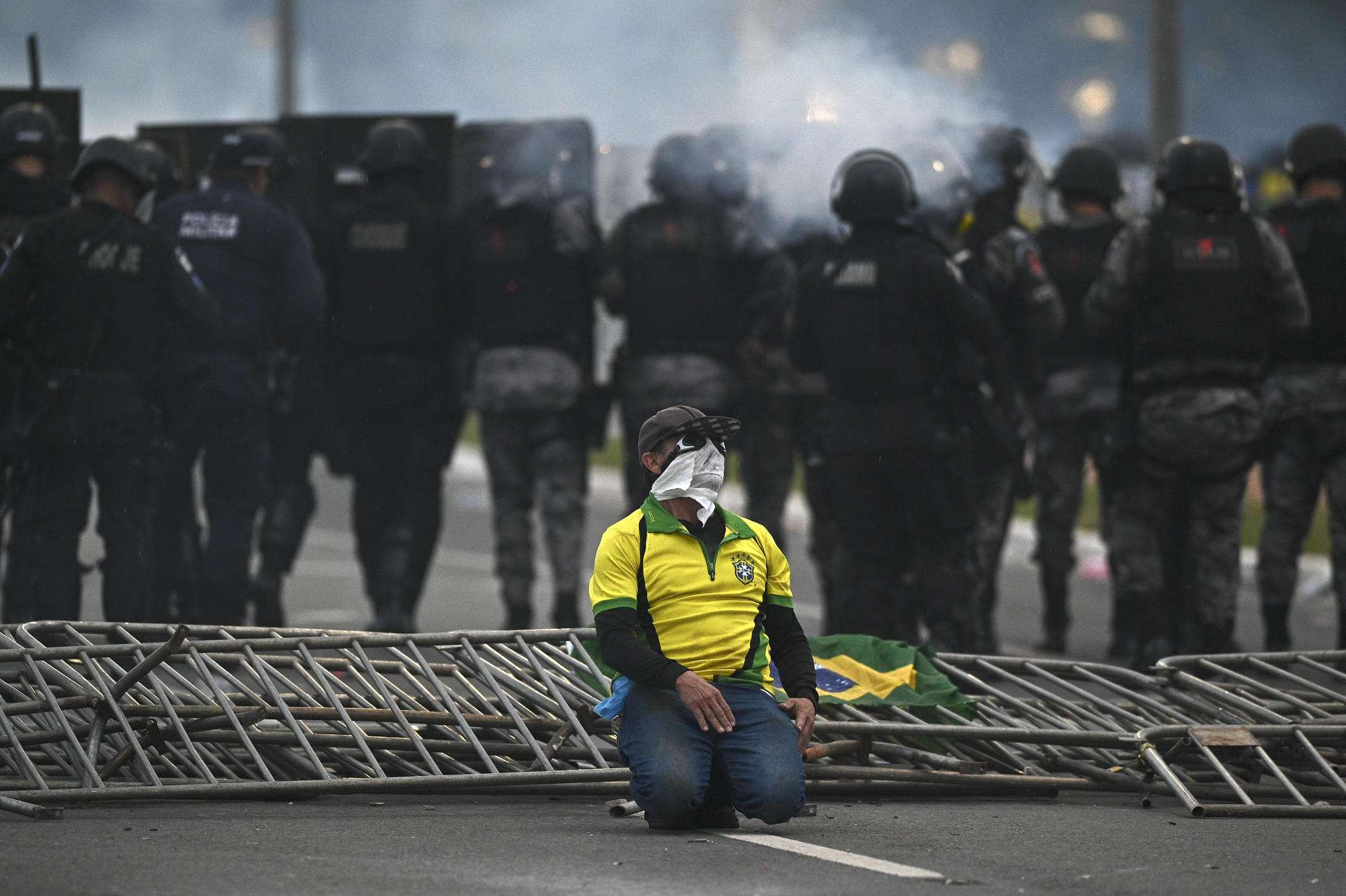The chronology of events, after Lula’s final victory at the polls and his inauguration on January 1, is torn between ridicule, shame, and extremism. The opposition’s reactions have been stimulated and legitimized by the conspiratorial attitude of the outgoing president, Jair Bolsonarowho since December 30 left the Government and the country to go to the city of Orlando, Florida.
The culmination of the political dystopia, come true, was the assault yesterday, Sunday, January 8, at the headquarters of Congress, the Federal Supreme Court and the Government in Brasilia. It could be said that it was a remake of the invasion of the US Capitol in January 2021. Bolsonaro had suggested to his fascist hordes that this act could take place in Brazil, in September 2021.
Bolsonarists invade Brasilia and call for military intervention
In yesterday’s Brazilian version, the attack on the other two powers of the democratic State was added: the Executive and the Judiciary. It is presumed that everything happened with the collusion of security institutions, the Army and the armed forces.
The frustration of Bolsonaro and his followers is understandable, who, between religious mysticism, political corruption allied to the machinery of the previous government and the campaigns of hate and fear, believed and made believe that the ball would stay at their feet and they would have thrashed the next four years. Despite his victory, Lula had warned about the challenges that Bolsonaro implied in the present and the immediate future of Brazil.
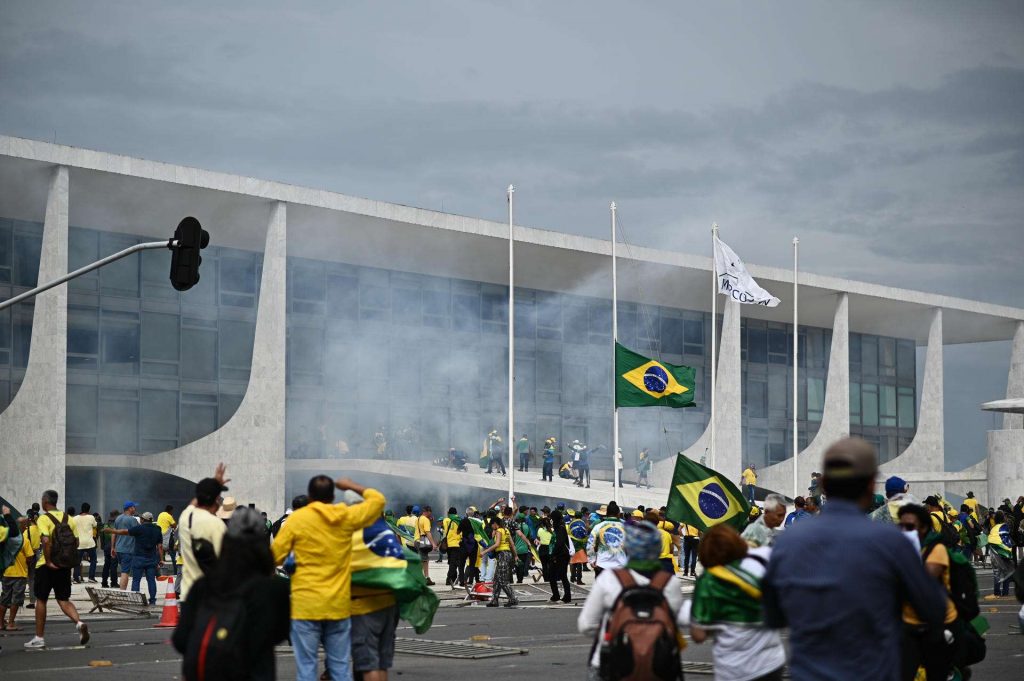
Anti-left sentiment and post-truth
I arrived in Brazil in 2017, after the dismissal of Dilma Rousseff (Workers Party), in an ambiguous context of indignation and response to that anti-democratic coup and, at the same time, marked by a visceral anti-petismo-antilulismo. The big news media like or globe they echoed the accusations against Lula and the Workers’ Party (PT); in the popular masses the anti-left feeling was permeating. Thus, the way was clear for the neoliberal elites to establish their fascist ventriloquist: Jair Messias Bolsonaro.
Five years after my arrival, the “myth” became a stone in the shoe of a part of the liberal right itself and shattered the hope of millions of poor people in the country. Friends who in the 2018 elections believed that the best way out was not Lula, nor Dilma nor the PT, in 2022 they put their differences aside to defeat the “unmentionable”.
The ideological bases of Bolsonarismo were perfected; Post-truth strategies were raised to maximum levels through social networks.
In those years, the political and economic classes related to the Bolsonaro project tested and implemented their economic ideals of privatization and dismantling of public policies with relative ease. And finally, these ideals radicalized interpersonal relationships between family and friends, leading them to stages of rupture, suffering, insensitivity, and social unrest. They also did it through collective paranoia, religious mysticism and political cooptation.
In his acclaimed text Psychology of Bolsonarismoone the philosopher and psychoanalyst Diogo Bogéa tries to elucidate cardinal questions: “What drives so many people to bow down to a political ‘leader’ with blind devotion and open idolatry? How to explain that your relatives, friends and neighbors who perhaps at other times have treated you with due cordiality become aggressive and against you when they realize that you do not agree with the ideas of the ‘myth’? How can we explain that highly educated people in our universities (professors, engineers, lawyers) reject vaccines, believe in alternative and delusional versions of the history of Brazil and the world, and take the crudest false news as the purest realities? ”.
Questions like these, even with a favorable and non-Bolsonarist electoral result, will continue to be essential to understand the Brazilian political environment.
A Sunday afternoon in the Plaza de los Tres Poderes
Yesterday I reached the entrance to the Metropolitan Cathedral of Brasilia, from where I could observe the tense and at the same time festive atmosphere of those who had invaded, three hours earlier, the headquarters of the three branches of the Brazilian State: the Executive, the Legislative and the Judicial. The monumental religious work, designed by the architect and communist Oscar Niemeyer, is located less than a kilometer from the Plaza de los Tres Poderes, which was turned into a Sunday battlefield.
I sat down on one of the benches that flanks the entrance to the sacred place; On the other side, a group of Bolsonaro supporters were chatting animatedly and telling each other about their “feats.” From inside the enclosure a mass was heard, several of the protesters entered the cathedral to offer alms and pray, or crossed themselves and bowed as they passed through the entrance.
They walked without haste through the Esplanade of the Ministries, wearing the shirt green-yellow that distinguishes Brazilian soccer, wrapped in the flag with the allegory of “Order and Progress”, or wearing pullovers that say: “Brazil above all, God above all!”, reminiscences of that America first…
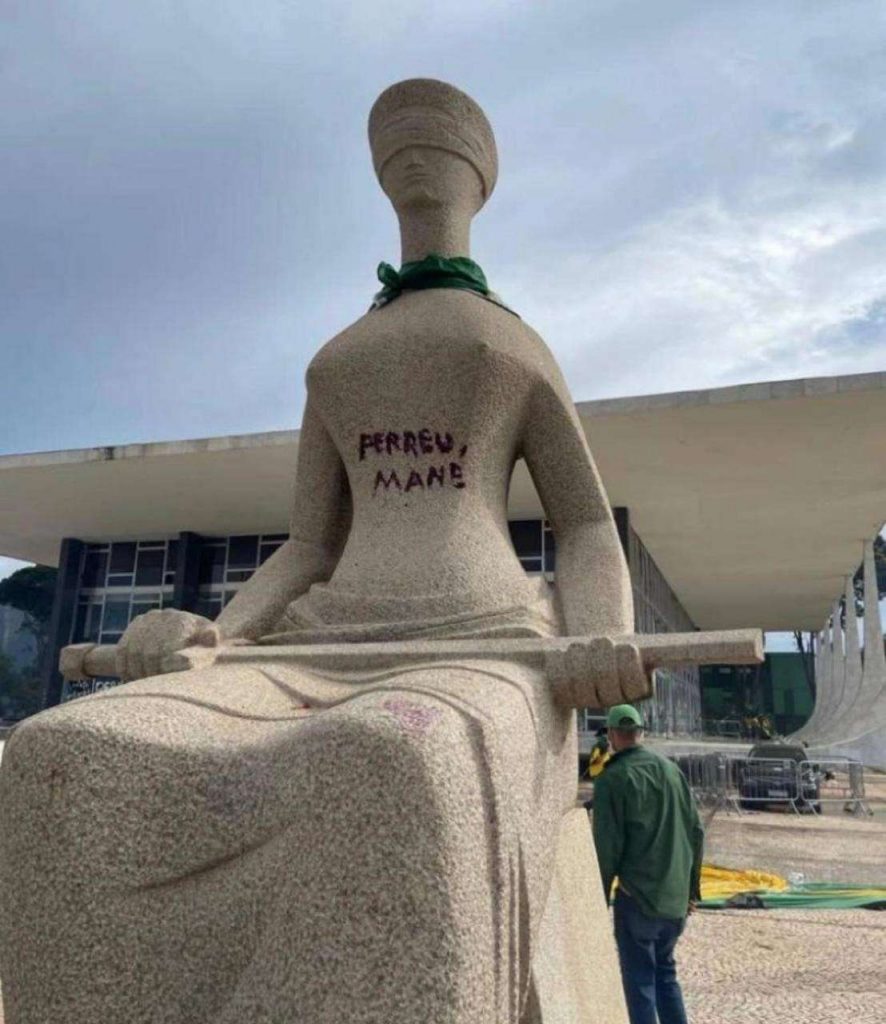
An almost 70-year-old man who was part of the demonstrations approaches me and tells me that he is going home, because the police were already getting more energetic in repressing them. At the age of him he is not for that, he affirms with a consoling smile.
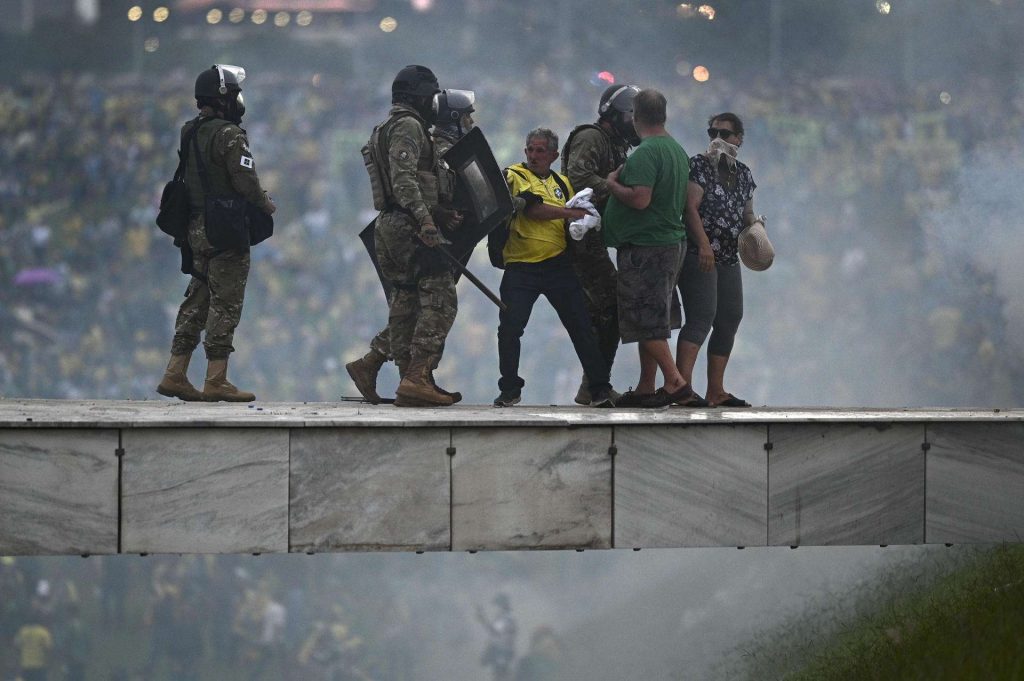
I also spoke with a businessman from São Paulo, a man in his 60s who says that he has been camped out in front of a barracks for days, that today “was already a burst of despair to see that the Army was not listening to us.” He seems to be a lucid man, although in Saramago’s perspective, blindness and lucidity can be complementary.
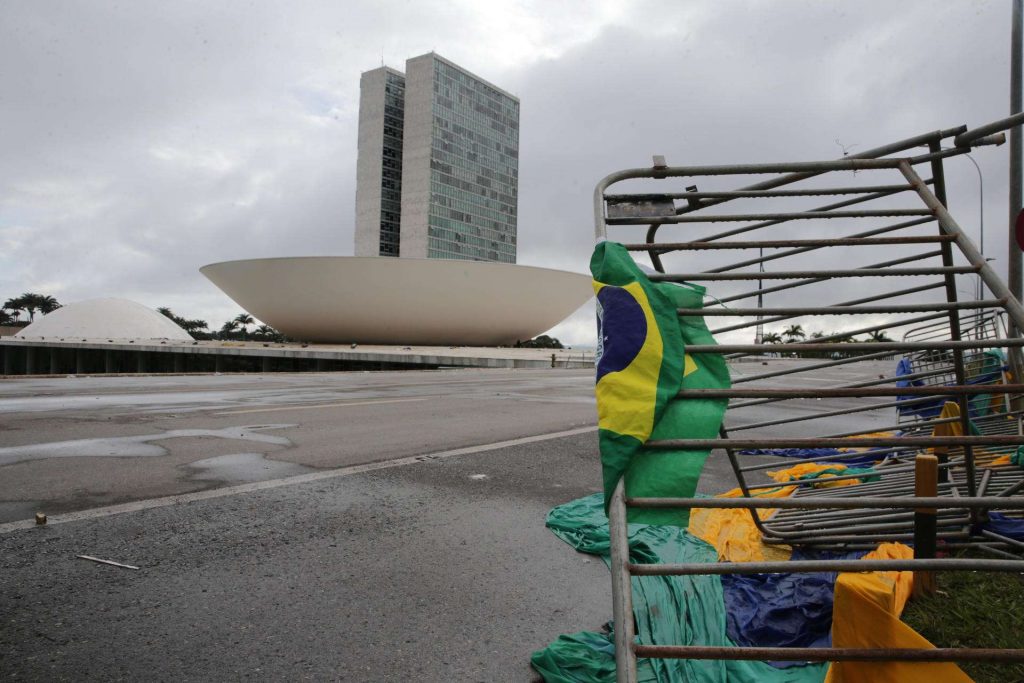
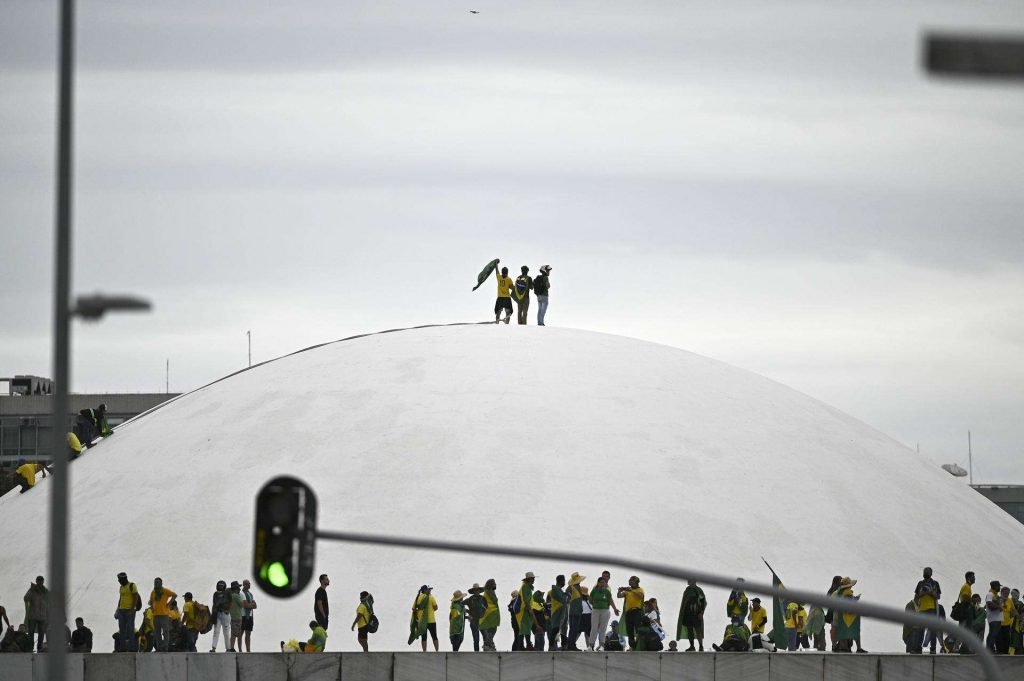
Since October 30, as expressions of political discontent, roadblocks, burning tires, hate demonstrations and regional racism (against the Northeast of the country, traditionally more progressive at the time to vote). So were the “sit-ins” and collective pro-Messianic prayers in front of Army barracks requesting military or “celestial” intervention so that Lula would not assume the presidency.
All this, in the name of the preferred slogan of the Bolsonaro fans: “Deus, pátria, família e liberdade” a contemporary version of the motto of the Salazar dictatorship in Portugal, also assumed by the integralism by Plinio Salgado2the Brazilian variant of fascism that began in the 1930s.
Being and doing the best possible in Brazil today
Yesterday Lula returned from his Sunday visit to Araraquara, São Paulo. At 11 pm she was already in the Government Palace, touring various places, taking measures and condemning the unconstitutional acts.
On the other hand, Ibaneis Rocha, re-elected governor of Brasilia and a close associate of Bolsonaro, was quick to offer apologies Lula and the country for what happened. It was of little use to him, because in the early hours of this Monday a decision de Alexandre de Moraes, Minister of the Federal Supreme Court, has removed him from office for 90 days to be subjected to investigation.
In these scenarios Brazil is debated, Jair was already ’embora’, as one warned song that went viral during the electoral race, but his departure leaves a trail of uncertainties, paradoxes, mixed and exacerbated feelings. It takes time and a lot of effort to carry out the collective healing that allows us to move forward, be and do the best possible in Brazil today.
On November 9, 2022 we say goodbye to Gal Costa, one of the greatest divas of Brazilian Popular Music (MPB), to perpetuate her light in the firmament. I remember her today, in the light, or in the shadow, of yesterday’s events. And I decree that Gal’s light continue to illuminate this “divine and marvelous” people, that the spiritual and musical strength of her legacy be appealed to: “Atenção ao dobrar una esquina, Uma alegria, atenção menina […] Do you see me? How many years do you have? Attention, you need to have firm eyes, for this sun, for this darkness […] Attention…Everything is dangerous…Everything is wonderfully divine…Attention to the refrain: We must be attentive and strong, We have no time to fear death, We must be attentive and strong, We have no time to fear death”. 3
Notes:
one Diogo Bogea. Psicologia do Bolsonarismo: Why do so many people turn to the myth? Philosophy Office, 2021.
2 Jose Chasin. The Integralism of Plínio Salgado: form of regressivity in hyper-late Capitalism (1st Ed). Livraria Editora Ciências Humanas, São Paulo, 1978.
3 In its translation into Spanish: “Attention when turning the corner, A joy, attention girl […] You come? How old are you? Attention, you have to keep your eyes steady, for this sun, for this darkness […] Attention… Everything is dangerous… Everything is divine and wonderful… Attention to the choir: We must be vigilant and strong, We have no time to fear death, We must be vigilant and strong, We have no time to fear death”.
